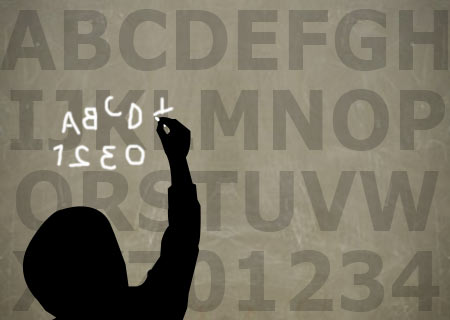Dyslexia is characterized as reading disorder that is commonly observed in children. A learning disability needs treatment in order to correct and normalize language skills.
What is dyslexia?
Dyslexia is defined as learning disorder that usually starts in children and can remain for life if not treated properly. People with dyslexia have the intellectual faculties to attend normal schooling but they find it hard to write, read and spell. The difficulty in learning is due to the impairment present in the brain. Their brain was not able to decode the images when it received them through the eyes and the ears thus making the reading and writing is hard.
People with dyslexia are normal and the problem is not due to any vision problems or mental retardation. It is simply a learning disability due to many some factors. Often a lifelong problem requires patience and support from the school and families.
Generally, there are three kinds of dyslexia. Each kind has its own characteristics. The three kinds of dyslexia are:
- Trauma dyslexia usually happens when a serious brain injury affects the part of the brain where reading and writing is controlled. This is rarely seen in school age kids.
- Primary dyslexia is a dysfunction that affects the cerebral cortex of the brain. A person with this type of dyslexia may find it hard to comprehend above the fourth grade level. Often a lifelong condition normally found in boys than in their girls’ counterpart.
- Secondary dyslexia is due to the hormonal development that takes place in the early formation of fetal development. This type of dyslexia can diminish if treated properly in the early stage.
What is the Cause of Dyslexia?
Dyslexia learning disorder is often caused by genetics. It normally runs in the families with history of dyslexia.
What are the Symptoms of Dyslexia?
Symptoms of dyslexia may vary before school, during school age and in adults. Some of the symptoms that appear before school age are:
- Child learn to talks late
- Hard to learn new words
- Find difficulty in rhyming
Teachers usually see the first indicators of dyslexia when the child enters school. Some of the symptoms of dyslexia learning disorder during school age are:
- Inability to distinguish letters like “b” may interchange for “d”
- Lack of ability to pronounce unfamiliar word
- Reading ability is below what is expected for the child age
- Hard to understand given instructions
- Inability to understand multiple commands
- May fail in spelling
- Hard to understand and learn foreign language
Some symptoms of dyslexia in adults may include:
- Â Difficult to read
- Inability to summarize a story
- Inability to memorize
- Lack of ability to comprehend jokes
It is important that the symptoms be treated early to minimize problems when they reach adulthood.
What are the Treatments of Dyslexia?
Treatments of dyslexia often include family and support groups. However, there are no exact drugs for dyslexia. Some of the treatments that may help dyslexia are:
1. Reading aloud
 Reading aloud to your child is the best way to develop their reading and writing skills. You may start with recorded podcast of books and later you may read them the stories after listening.
Reading aloud to your child is the best way to develop their reading and writing skills. You may start with recorded podcast of books and later you may read them the stories after listening.
2. Attend dyslexia education class
 Your child needs to attend education class for dyslexia. Attending with education class specifically for them will allow them to be more comfortable and less pressured because they know that there are teachers who understand their special needs. A teacher or specialist may use techniques that may improve the way your child learns new words and develop vocabularies. A taped instruction while tracing the shape of each letter will help in distinguishing letters and words. With proper treatment, dyslexia people can excel in math and even in literature.
Your child needs to attend education class for dyslexia. Attending with education class specifically for them will allow them to be more comfortable and less pressured because they know that there are teachers who understand their special needs. A teacher or specialist may use techniques that may improve the way your child learns new words and develop vocabularies. A taped instruction while tracing the shape of each letter will help in distinguishing letters and words. With proper treatment, dyslexia people can excel in math and even in literature.
3. Join support groups
 Joining support groups for dyslexia will benefit your child in coping with the learning disorder. There are times that a person with dyslexia will find difficulty to mingle with other people because of the fear that they will be judged that is why joining a support group will help them get the support their need. Having dyslexia does not necessarily mean that there is no hope. People with dyslexia may find it hard to read and write at early stage but with proper motivation and coordination, they may excel later in life.
Joining support groups for dyslexia will benefit your child in coping with the learning disorder. There are times that a person with dyslexia will find difficulty to mingle with other people because of the fear that they will be judged that is why joining a support group will help them get the support their need. Having dyslexia does not necessarily mean that there is no hope. People with dyslexia may find it hard to read and write at early stage but with proper motivation and coordination, they may excel later in life.
Dyslexia people need proper support and guidance from school and families. Early diagnosis of dyslexia is important you may ask your doctor if you see some symptoms of dyslexia to your child.
